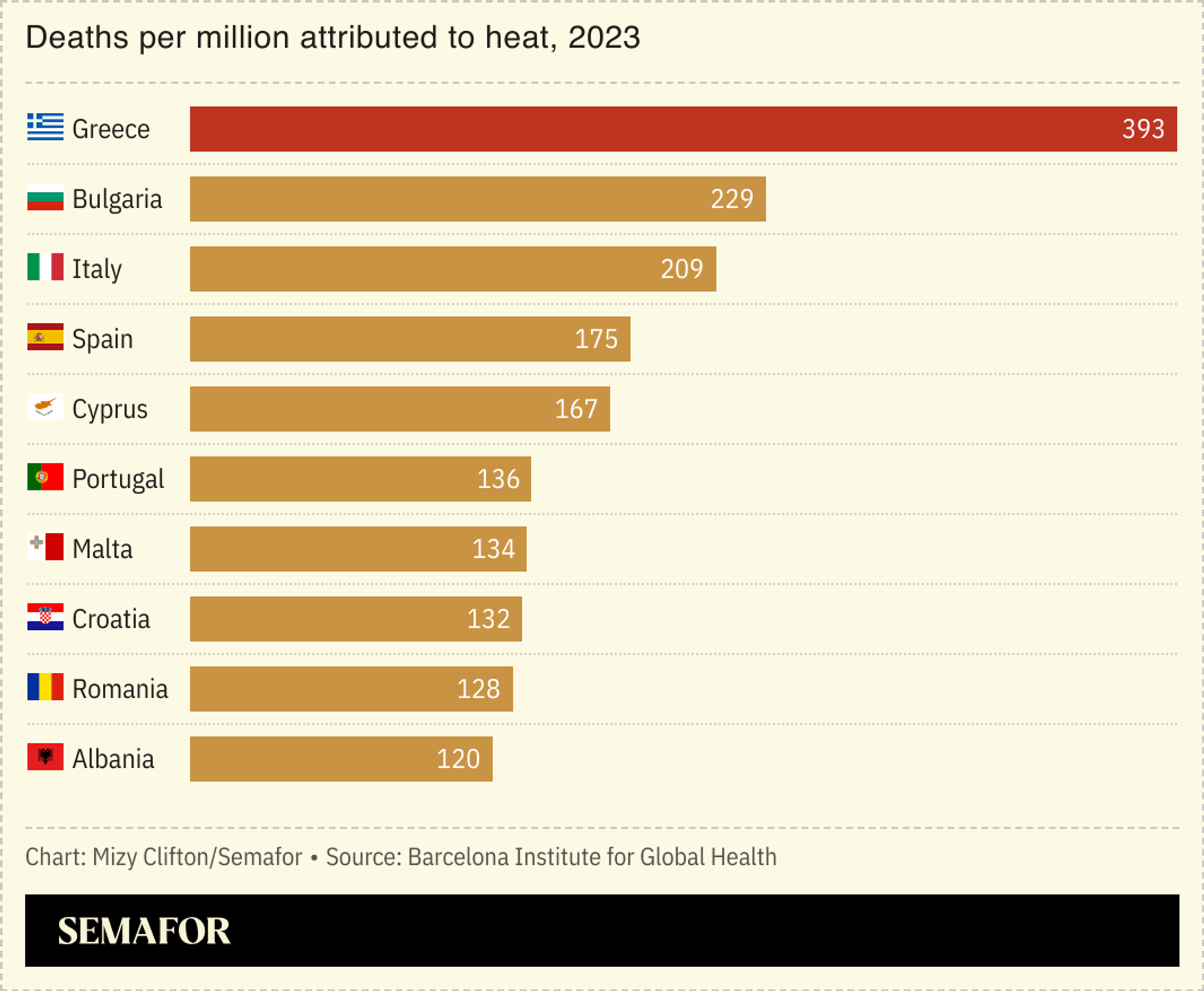The News
Thousands of people were told to evacuate from Athens and its surrounding area as Greek authorities battled a huge wildfire that is being driven by gale-force winds. The country called on the European Union for help, and France and several other countries are sending people and other resources to try and curb the blaze.
The fires have been burning for at least three days through forests left dry by successive heat waves.
The Greek Ministry of Climate Crisis and Civil Protection has put half the country on red alert for extreme fire risk, as it tries to adapt to increasingly extreme heat and larger, longer-burning wildfires.
SIGNALS
Adapting to heat prevents deaths, but it might not be sustainable
Greece experienced its hottest June and July since records began this year, and there’s evidence that heat stress may be increasing mortality, particularly in southern Europe. More than 47,000 people died in Europe in 2023 as a result of heat, according to a new study published in Nature Medicine. It would have been far more, the researchers say, without climate adaptations. Public health initiatives and individual changes — like installing AC, for example — have cut heat-related deaths in recent years, but “inherent limits in human physiology and societal structure are likely to set a bound to the potential for further adaptation in the future,” one of the researchers warned.

Southern Europe is particularly at risk
Southern European countries, including Greece, Bulgaria, Italy, Spain, Cyprus, and Portugal, collectively saw the highest heat-related mortality rates in 2023, the Nature Medicine study found. “The Mediterranean is a hot spot of the climate crisis,” with temperature increases in Greece exceeding 1.5°C (34.7°F) over the past 30 to 40 years, a research director at the National Observatory of Athens told Euronews. Greece is made more vulnerable by its dispersed archipelago geography, a climate envoy for Greece added, as each island has a distinct ecosystem and some lack the infrastructure and accessibility required for effective evacuation and relief efforts.
Wildfires are often manmade disasters, but climate change lays the foundations
Greek authorities blamed last summer’s wildfires on negligence or arson, but climate change has created “more of the conditions that start fire[s],” scientists argued in The Conversation, with worsening drought, heat waves, and other extreme weather. Poor forest management practices, like not clearing away dry vegetation, also make dangerous wildfires more likely, an Athens-based Greenpeace campaigner told The Parliament in January. The government has introduced “piecemeal interventions” that don’t address the root causes of Greece’s increased fire risk, she added. Meanwhile, a combination of state negligence and land overdevelopment has led to some Greek neighborhoods becoming “death traps” during such emergencies, an Athens-based columnist argued in Al Jazeera in 2023.

